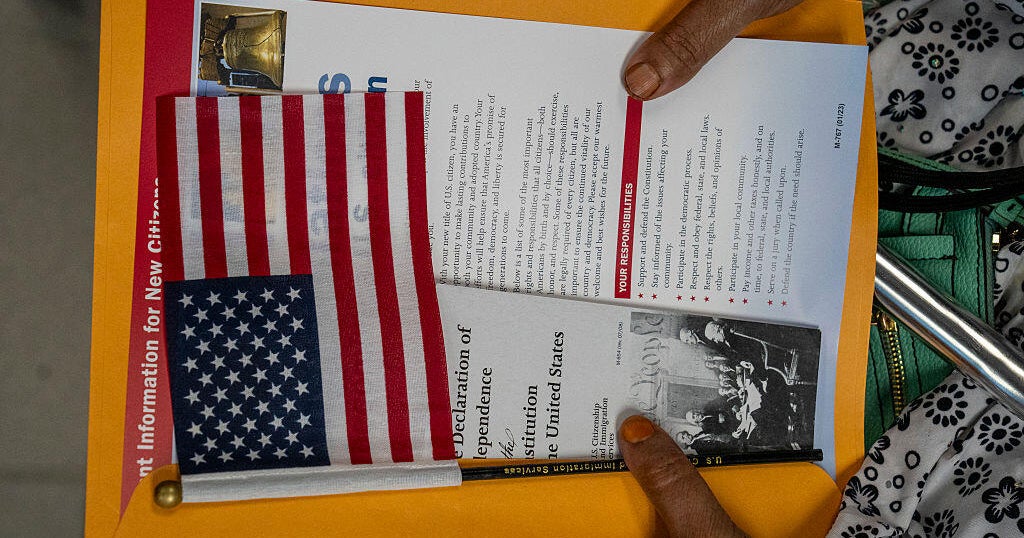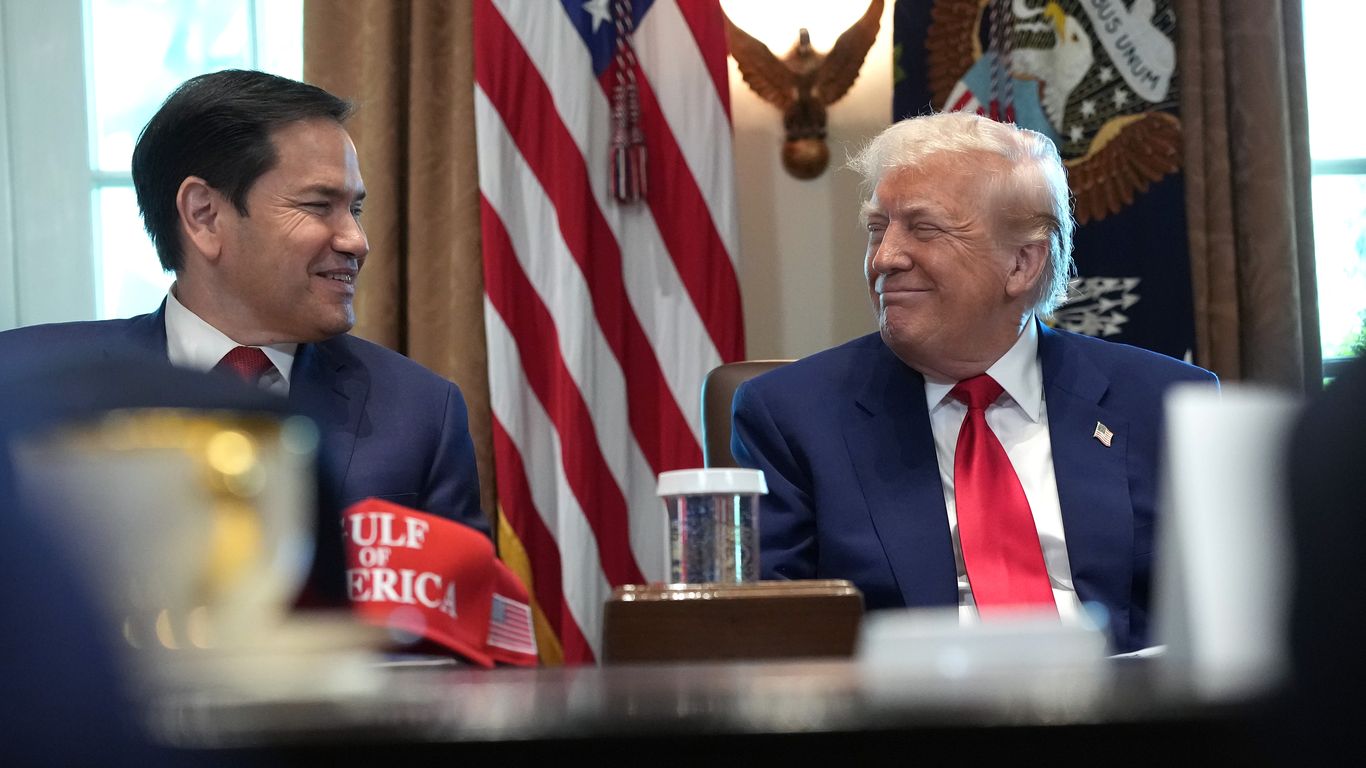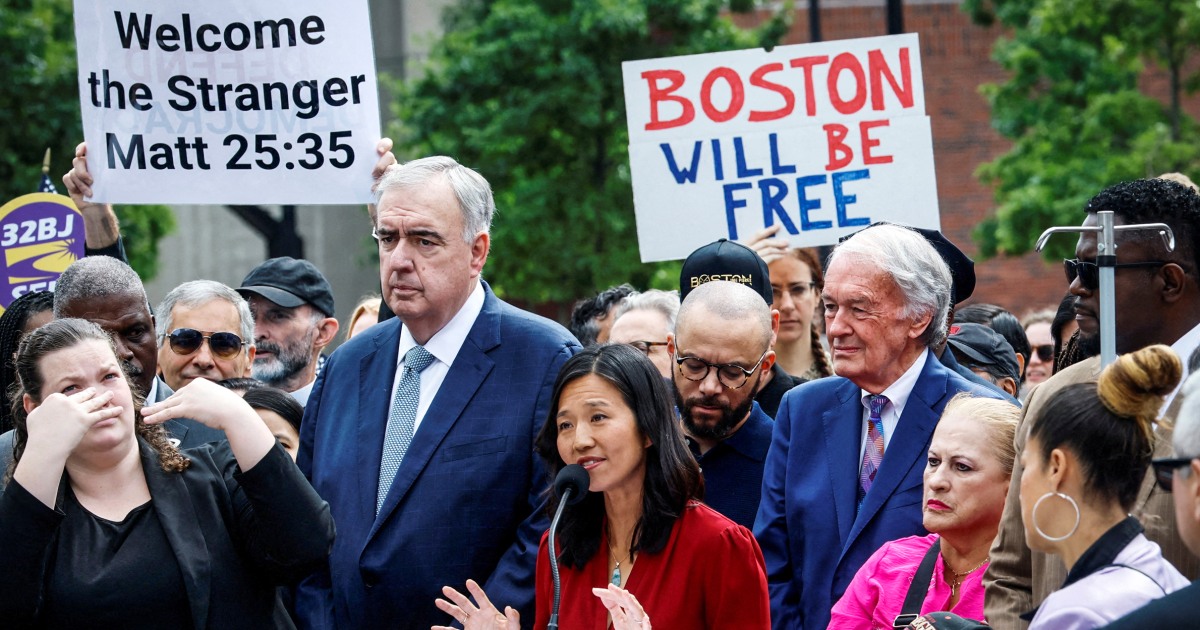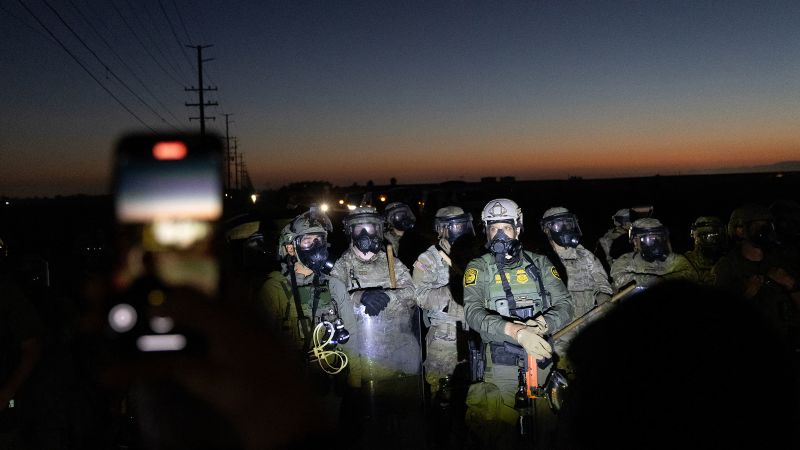Federal Judge Blocks Expansion of Expedited Removal of Migrants

Introduction
In a significant blow to the Trump administration's immigration policies, a federal judge has blocked the broad expansion of expedited removal of migrants. This ruling will prevent the government from fast-tracking the deportation of undocumented migrants inside the country without giving them due process.
Key Details
The ruling comes after a legal challenge was brought by several immigrant rights groups, arguing that the expansion of expedited removal would put vulnerable individuals at risk of being deported without a fair chance to defend themselves. The judge agreed, stating that the government's actions were in violation of the Administrative Procedure Act and the Due Process Clause of the Fifth Amendment.
This ruling is a win for immigrant rights advocates who have been fighting against the Trump administration's aggressive immigration policies. It also serves as a reminder that all individuals, regardless of their immigration status, are entitled to due process and fair treatment under the law.
Impact
The impact of this ruling is significant and will have far-reaching implications for the Trump administration's immigration policies. It not only blocks the expansion of expedited removal, but it also sends a message that the government cannot disregard the rights of immigrants and push through policies without proper legal processes.
This ruling is a step in the right direction towards a more fair and just immigration system, and it is an important victory for those fighting for the rights and protections of undocumented migrants in
About the Organizations Mentioned
Trump Administration
The **Trump Administration** refers to the executive branch of the United States government under President Donald J. Trump, covering two non-consecutive periods: his first term from 2017 to 2021 and his second term beginning in 2025. As an organization, it is responsible for executing federal laws, shaping public policy, and managing national affairs during its tenure. During the **first Trump Administration (2017–2021)**, the administration pursued a wide-ranging agenda focused on immigration reform, economic nationalism, deregulation, judiciary appointments, and foreign policy shifts. Key actions included building and expanding the U.S.-Mexico border wall—completing 458 miles by January 2021—and implementing strict immigration policies such as travel bans from several predominantly Muslim countries and rescinding the DAPA amnesty program[2]. The administration withdrew the U.S. from the Trans-Pacific Partnership trade deal, renegotiated NAFTA into the USMCA, and signed the "Buy American and Hire American" executive order to prioritize American workers[1][3][5]. Judicially, Trump appointed three Supreme Court justices—Neil Gorsuch, Brett Kavanaugh, and Amy Coney Barrett—significantly influencing the federal judiciary with over 200 judicial appointments[5]. The administration also focused on military expansion, combating ISIS, addressing the opioid crisis, and responding to the COVID-19 pandemic with vaccine development support[5]. Foreign policy was marked by controversial decisions including troop withdrawals from northern Syria, reinforced support for Saudi Arabia, and tensions with Iran and North Korea[4]. The administration faced two impeachments: first in 2019 over Ukraine dealings and again in 2021 following the January Capitol riot; Trump was acquitted by the Senate both times[4][5]. After losing the 2020 election, Trump returned for a **second term starting in 2025**, continuing his policy priorities with new regulatory changes and political appointments[6][8]. The Trump Administration











